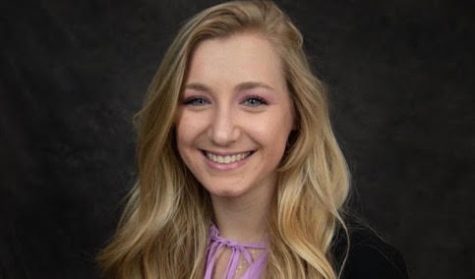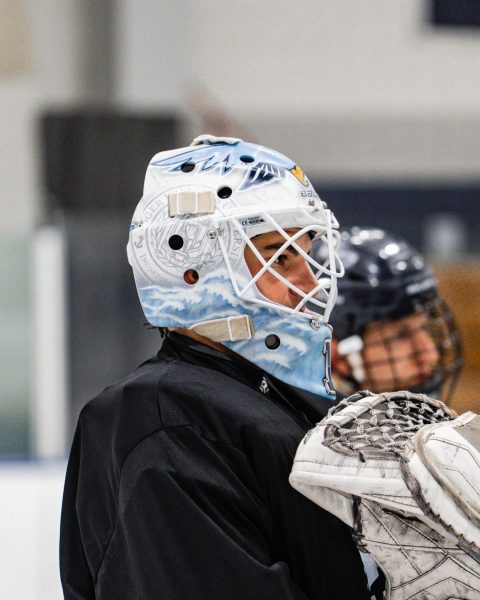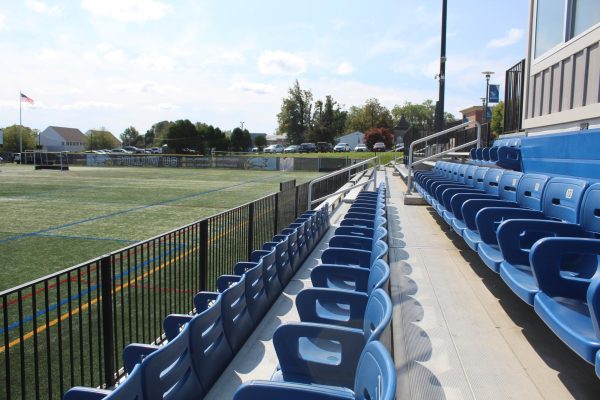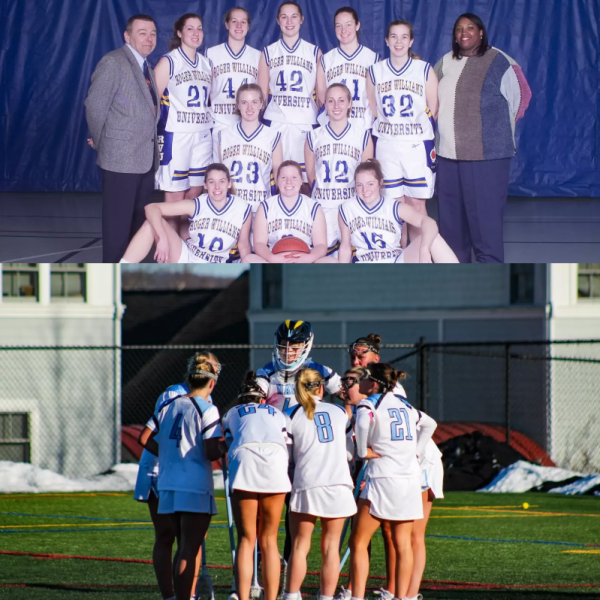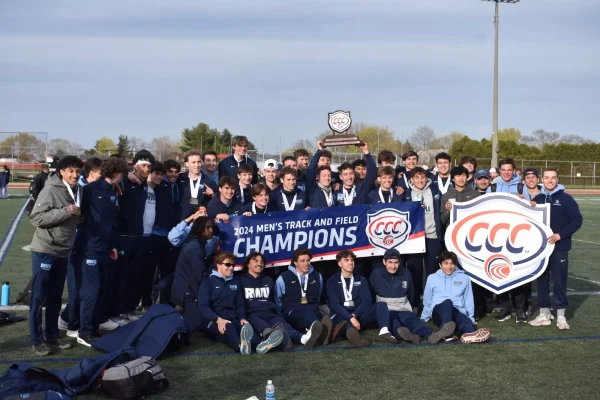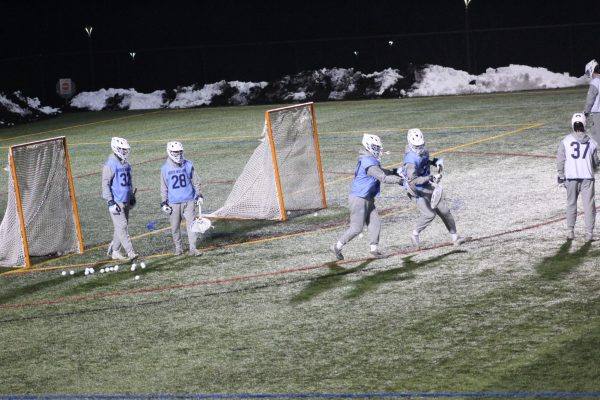Equestrian team gets ready to ride Senior captain shares details about the competition process
Junior Captain Sophia Casale wakes up at 6 a.m., slides on her tall black boots, tan riding pants, white collared shirt and black riding coat. It is a Saturday morning, and she is getting ready to compete for the RWU Equestrian team.
Casale joined the team last year and has been riding horses for about 15 years.
“My mom asked me when we were driving by a farm one day, ‘do you want to take a lesson?’” Casale said. “My mom had horses growing up so I think she kind of wanted to get back into riding. So, my mom and I both started taking lessons and then we ended up buying horses, and that was that.”
Casale started competing around the age of eight. She competed in various disciplines over a 10-year span of competitions.
“I was trying a bunch of different disciplines, such as the 100 jumper equitation, where you work on jumps and doing an event called dressage, which is like making the horse dance, I would say. I did that for a while. I was jumping back and forth and until I found my niche,” Casale said.
Casale claimed she became serious about competing again once she joined the equestrian team at RWU. The team competes in the English style of Equestrian, meaning they perform the 100 jumper equitation.
At the competition, twelve teams are sorted into different classes called introductory, novice, limit, intermediate and open.
Once the riders are put into their classes, the show will perform what is called a draw in order to keep the competition fair. The draw is when the names of the horses competing that day are picked out of a hat. That is how the horses are chosen for the riders on the day of a show. The process is regulated by the Intercollegiate Horse Show Association, or IHSA.
“They do this to eliminate any biases,” Casale said.
Once the draw is finished, the competition begins. Each rider gets on their horse for that day and a judge watches them compete within their class. In each class, there is a person that is a point rider. These riders compete within the competition to earn points for each team. The point riders change for every competition.
A judge watches all the riders compete and scores the riders on their look, position on their horse and how well they control the horse while they’re riding.
Once the competition is over, ribbons are pinned to the best rider in each class. There are six winners. The first place winner receives seven points, second place receives five, third receives four, fourth receives three, fifth receives two and sixth receives one point.
At the end, each member from each class adds up all of the points they receive to get a total number. Whichever team has the most points wins the show.
“It is almost like a strategy game,” Casale said. “You want your best rider to pin really well so you get the points for them.”
To get ready for their horse shows, the teams have certain times where they practice during the week. According to Casale, their schedules are pretty accommodating to their class schedules.
“Practice rides are very flexible, so it’s different than other sports where you have to be done with classes at 3. We have two workouts in the morning at 6:30 a.m. on Tuesdays and Thursdays in the gym,” Casale said.
Overall, Casale said she spends about three hours in total at her lesson, since she has to take care of the horse before she rides and after.
Casale also mentioned the relationship she creates with the horses and how important it is.
“Everyone has a favorite horse at the barn,” Casale said.
“They are part of the team. We as riders can only do so much as they do. You spend so much time there, you are put with a lot of horses and you get to know them and their personalities and they are really funny. When you are riding you have to have a constant communication with your horse. You have to know where their head space is, but also where yours is as well.”
Casale said there is a certain trust created once the rider gets on the horse.
“When you’re riding a random horse, you’re the one controlling,” Casale said. “When you are competing and you get a random horse, there is not a lot of time before you compete to create trust. You can let them smell your hand or pet them, but it is honestly pretty incredible that a partnership is created almost immediately.”
Last year, the team made it to nationals in Syracuse, New York and placed 13th in Nationals. Casale is confident the team is going into this year with the same mindset and work ethic as last year and working on reclaiming their title.
The equestrian team’s next horse show is on Nov. 2. It will be hosted by RWU and Salve Regina University in Portsmouth, Rhode Island at Nora Harrison Equestrian, which is on the grounds of the Aquidneck Club.

